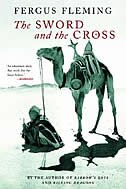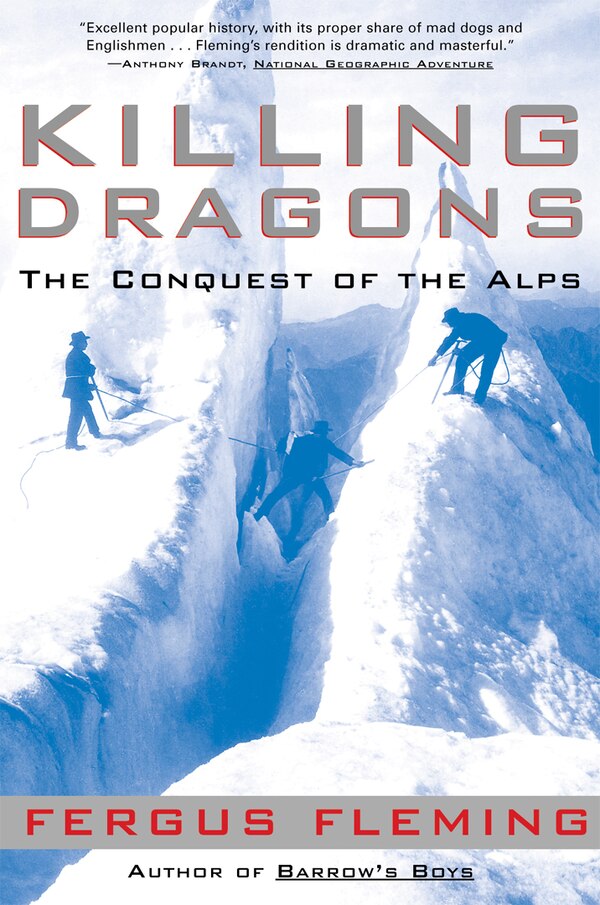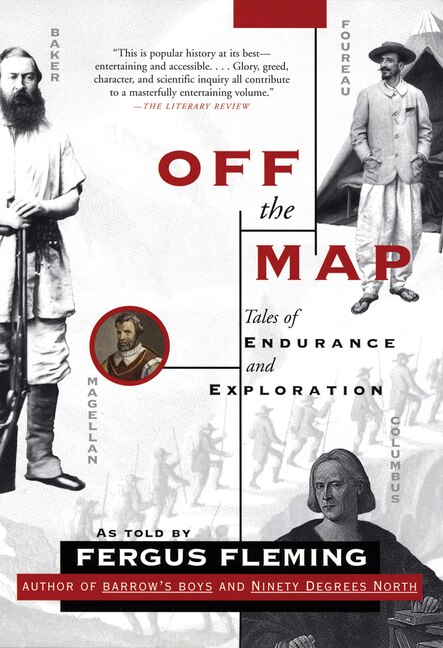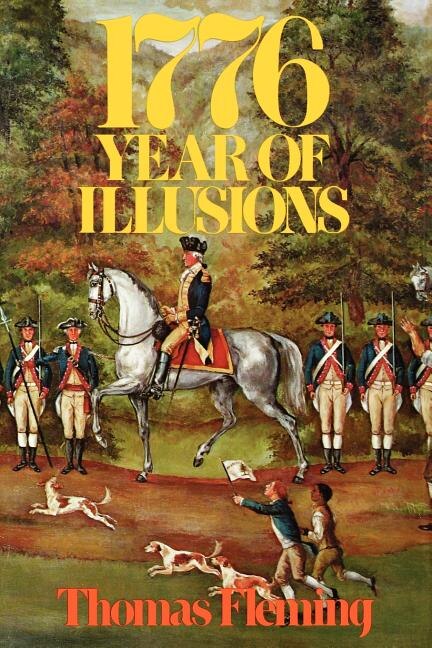
Give the Gift of Choice!
Too many options? Treat your friends and family to their favourite stores with a Bayshore Shopping Centre gift card, redeemable at participating retailers throughout the centre. Click below to purchase yours today!Purchase HereHome
The Sword and the Cross by Fergus Fleming, Paperback | Indigo Chapters
Coles
Loading Inventory...
The Sword and the Cross by Fergus Fleming, Paperback | Indigo Chapters in Ottawa, ON
By Fergus Fleming
Current price: $23.50


By Fergus Fleming
The Sword and the Cross by Fergus Fleming, Paperback | Indigo Chapters in Ottawa, ON
Current price: $23.50
Loading Inventory...
Size: 0.95 x 9 x 500
*Product information may vary - to confirm product availability, pricing, shipping and return information please contact Coles
1.A brief history of Algeria. Back in the 17th century it was led by Ottomans but led by Day pirates whose reputation for violence was known around the world. In 1858 a French consul visited the area and when he refused to pay back a debt, was injured by a Day representative. France seized on this to move into Algeria and found that conquering the Day wasn't as difficult as they thought. France half-heartedly led the quasi-anarchic colony at first but the rule of Napoleon IV gradually strengthened their involvement. See p. 11 for descript of land's horrors. By late 19th c the people of the land are severely dispossessed.2.Charles Eugene, Vicomte de Foucauld is introduced. Brought up as an orphan, rootless, spoiled by grandparents and friendless, he lost his religious faith in his teens and became a layabout, filling his time at the dreaded military academy with pranks on the higher officers. He struggled w. depression and an uncompromising appetite for food. After a particular prank, he was expelled from the academy and sent to Africa, where he was expelled after it was discovered that the wife he had taken with him was actually a mistress. In 1881 France invaded Tunisia and the tribal leader Bu Amama invaded Algeria in retaliation, Foucauld reenlisted. France's struggle to defend Algeria was wrapped up in a new plan to link Algeria to France's colonies in the south by conquering the Sahara and effectively colonizing all of West Africa. This allowed them to import goods from these southern country by building a railroad across the Sahara, which they hypothesized contained other great resources.3A description of the Sahara which has been led by Tuareg nomads whose fierce grip on the area had dissuaded all previous would-be invaders. In 1861 an ambitious young French explorer Duvierier revealed that the Tuareg was not as hostile as they seemed and although subsequent murders disproved this, the Frenchgripped by a new wave of colonialism and a quest for rapidly diminishing national prestigechose to try to overtake the Tuareg anyway. Fueled in part by a French engineer's dream of a Transsaharan railway. See the last pages of the chapter for a description of an ill-fated expedition into the territory that eventually disintegrated into death and cannibalism.4.Henry Laperrine is introduced. Foucauld's opposite in every waywhere Foucauld lounged, Lepperine applied himself in every way. Foucauld was grossly overweight and languid, Lepperine thin and temperamental, etc etc (p 42). Laperrine unlike Foucauld was intensely devoted to the military and eventually to reforming it. The two develop a friendship while stationed together during the Bu-Amama war but eventually Foucauld drops out to travel to Morocco, a country wary of French invasion but with boundaries are fluid to the west. Trained by a French explorer and accompanied by a scraggly sickly Jew with connections in Morocco, Foucauldposing as a rabbidiscovers that the reigning class is not opposed to invasion (they see it as a call to civilization), although there are bandits throughout the country. Foucauld is praised when he comes home and eventually falls under the influence of a priest who convinces him to become a Trappist monk.5.After attempts to take the Sahara (now open to exclusively to France after the Anglo-French convention) via the North (Algeria) fail when the conquered oases are too disparate for the consolidation of rule, France decides to conquer the area from the south (i. e. Sudan) up. Laperrine joins a band of Senegalese hooligans who, so far removed from France, are militant commandos. They take Timbuku but only after tremendous bloodshed at the hands of the Tuareg. Eventually Laperrine inan effort to take Lake Chad raids a Tuareg camp in retaliation for the Tuareg's previously humiliating raid at Timbuktu. He becomes a legend and French morale is boosted. Seeking solitude he is dispatched to a place he sees as the key to French conquestForth MacMahon. There is placed in command of a group of Saphi camelmen.6.The story of the Jew-hating Algerian entrepreneur who riles the natives up with his conspiracy theories before eventually organizes an expedition to tame the Sahara that ends in a dramatic shootout that makes him a French legend. France's disastrous attempts at colonization are pushed further into the forefront.7.We're introduced to one of the greatest Saharan explorers Fernand Foreau, who as part of a three-pronged French attack on the crucial Lake Chad ventured into the Sahara with a gargantuan troop that included 381 well-armed troops. Overburdened with supplies, the camels die and the Tuareg attack, but are subdued. Meanwhile a separate army the Central African Mission attempts to take the land, committing incredible and gratuitous atrocities to intimidate the Tuareg, and | The | The Sword and the Cross by Fergus Fleming, Paperback | Indigo Chapters
1.A brief history of Algeria. Back in the 17th century it was led by Ottomans but led by Day pirates whose reputation for violence was known around the world. In 1858 a French consul visited the area and when he refused to pay back a debt, was injured by a Day representative. France seized on this to move into Algeria and found that conquering the Day wasn't as difficult as they thought. France half-heartedly led the quasi-anarchic colony at first but the rule of Napoleon IV gradually strengthened their involvement. See p. 11 for descript of land's horrors. By late 19th c the people of the land are severely dispossessed.2.Charles Eugene, Vicomte de Foucauld is introduced. Brought up as an orphan, rootless, spoiled by grandparents and friendless, he lost his religious faith in his teens and became a layabout, filling his time at the dreaded military academy with pranks on the higher officers. He struggled w. depression and an uncompromising appetite for food. After a particular prank, he was expelled from the academy and sent to Africa, where he was expelled after it was discovered that the wife he had taken with him was actually a mistress. In 1881 France invaded Tunisia and the tribal leader Bu Amama invaded Algeria in retaliation, Foucauld reenlisted. France's struggle to defend Algeria was wrapped up in a new plan to link Algeria to France's colonies in the south by conquering the Sahara and effectively colonizing all of West Africa. This allowed them to import goods from these southern country by building a railroad across the Sahara, which they hypothesized contained other great resources.3A description of the Sahara which has been led by Tuareg nomads whose fierce grip on the area had dissuaded all previous would-be invaders. In 1861 an ambitious young French explorer Duvierier revealed that the Tuareg was not as hostile as they seemed and although subsequent murders disproved this, the Frenchgripped by a new wave of colonialism and a quest for rapidly diminishing national prestigechose to try to overtake the Tuareg anyway. Fueled in part by a French engineer's dream of a Transsaharan railway. See the last pages of the chapter for a description of an ill-fated expedition into the territory that eventually disintegrated into death and cannibalism.4.Henry Laperrine is introduced. Foucauld's opposite in every waywhere Foucauld lounged, Lepperine applied himself in every way. Foucauld was grossly overweight and languid, Lepperine thin and temperamental, etc etc (p 42). Laperrine unlike Foucauld was intensely devoted to the military and eventually to reforming it. The two develop a friendship while stationed together during the Bu-Amama war but eventually Foucauld drops out to travel to Morocco, a country wary of French invasion but with boundaries are fluid to the west. Trained by a French explorer and accompanied by a scraggly sickly Jew with connections in Morocco, Foucauldposing as a rabbidiscovers that the reigning class is not opposed to invasion (they see it as a call to civilization), although there are bandits throughout the country. Foucauld is praised when he comes home and eventually falls under the influence of a priest who convinces him to become a Trappist monk.5.After attempts to take the Sahara (now open to exclusively to France after the Anglo-French convention) via the North (Algeria) fail when the conquered oases are too disparate for the consolidation of rule, France decides to conquer the area from the south (i. e. Sudan) up. Laperrine joins a band of Senegalese hooligans who, so far removed from France, are militant commandos. They take Timbuku but only after tremendous bloodshed at the hands of the Tuareg. Eventually Laperrine inan effort to take Lake Chad raids a Tuareg camp in retaliation for the Tuareg's previously humiliating raid at Timbuktu. He becomes a legend and French morale is boosted. Seeking solitude he is dispatched to a place he sees as the key to French conquestForth MacMahon. There is placed in command of a group of Saphi camelmen.6.The story of the Jew-hating Algerian entrepreneur who riles the natives up with his conspiracy theories before eventually organizes an expedition to tame the Sahara that ends in a dramatic shootout that makes him a French legend. France's disastrous attempts at colonization are pushed further into the forefront.7.We're introduced to one of the greatest Saharan explorers Fernand Foreau, who as part of a three-pronged French attack on the crucial Lake Chad ventured into the Sahara with a gargantuan troop that included 381 well-armed troops. Overburdened with supplies, the camels die and the Tuareg attack, but are subdued. Meanwhile a separate army the Central African Mission attempts to take the land, committing incredible and gratuitous atrocities to intimidate the Tuareg, and | The | The Sword and the Cross by Fergus Fleming, Paperback | Indigo Chapters

















